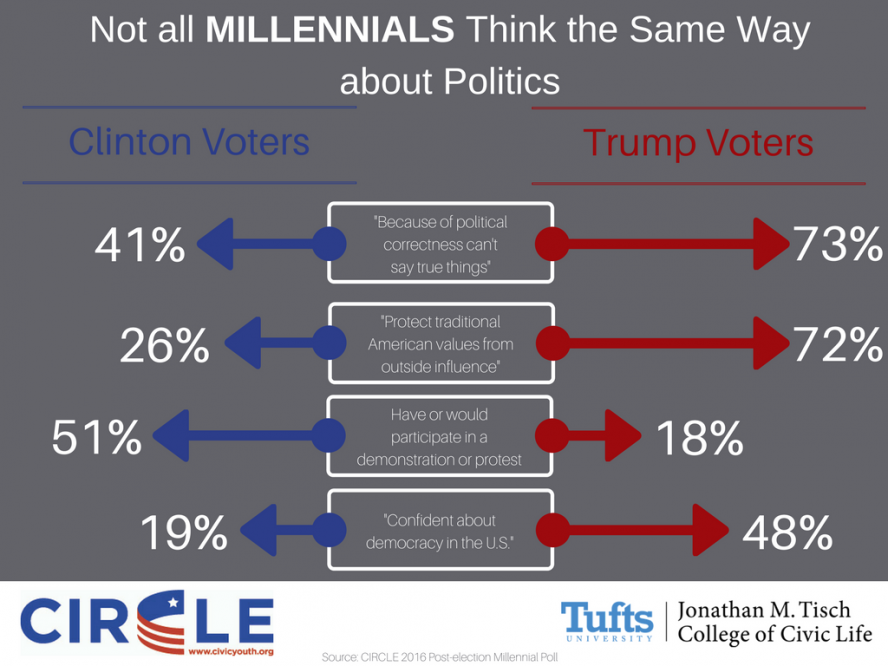Millennials After 2016: Post-Election Poll Analysis
A new CIRCLE poll of Millennials finds that, in the aftermath of the election, young people are unsurprisingly divided—depending on who they voted for in 2016—in their attitudes about American values and priorities, the health of the nation’s democracy, and the future of their own civic and political engagement. The differences between Trump voters (35% of youth) and Clinton voters (55% of youth) are complex, and they offer insights into the distinct avenues and strategies that will be necessary in the coming years to encourage all youth to participate more fully in democracy.
This new data comes from the second of our Millennial Election Polls. CIRCLE designed and analyzed a pre- and post-election tracking poll of 1608 Millennials (ages 18-34) who were part of a representative survey panel of GfK, an international polling company. Of the total sample, 1101 Millennials were retained for the second survey.
Some of our major findings include:
- Millennials continue to be a large, diverse, and influential group in electoral politics. They want to make choices driven by their values and have an impact on issues they care about, but they increasingly see direct community engagement (like community service) as more impactful than political engagement.
- While Millennials care deeply about acting on their values, there are sharp divides on what those values are. For example, 72% of Millennials who voted for Trump agreed that we must “protect traditional American values from outside influences” (vs. 26% of Millennials who voted for Clinton), while 65% of young Clinton voters agreed that “racial discrimination is a fundamental aspect of the United States” (vs. 23% of young Trump voters).
- Our pre-election poll revealed that young people who intended to vote for Donald Trump were both less experienced in civic and political engagement, and less likely to get involved beyond voting. The post-election poll shows that their chosen candidate’s victory did not change that fact; young Trump voters remain less likely than young Clinton voters to say that they would take up a formal civic or political opportunity, though they may be more open to more localized forms of engagement in which they directly help others.
- On the other hand, Millennial Clinton voters, who reported in our pre-election poll being more experienced and interested in political engagement, continue to be more likely to say they would pursue opportunities to engage if they are available. The biggest motivator for engagement among Clinton supporters is now resisting the new administration, as evidenced by their reported willingness to actively protest and to support the president’s impeachment.



